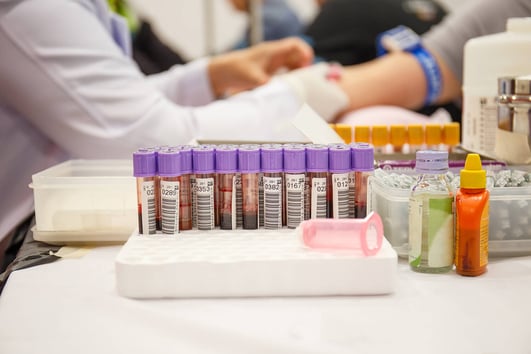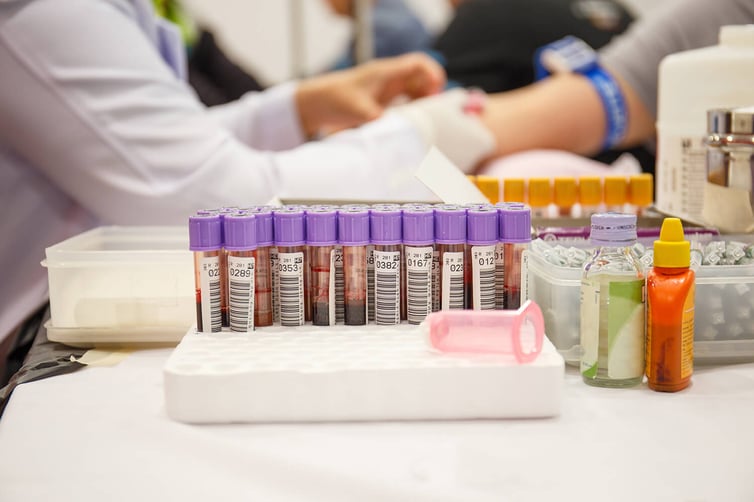Knowing your health numbers will assist in maintaining your well-being and alert you if lifestyle changes need to be made. Key numbers to know are your body mass index, cholesterol, blood pressure, and blood glucose. These simple tests will help you stay in control of your health and prevent disease.

Body Mass Index - A ratio of your weight compared to your height. A body mass index (BMI) of 18.5 to 24.9 is considered normal or ideal. A BMI higher than this increases risk for diabetes, heart disease, high cholesterol, and more. While BMI has some limitations – mostly for those that are highly muscular – for the majority of the population, it is a quick and easy assessment to indicate one’s risk for disease. Use this BMI calculator to measure your BMI. If your BMI isn’t where you want it to be, read these tips to improve it.
Cholesterol - A waxy, fat-like substance produced by the liver and consumed in the diet from meats and dairy products. Cholesterol is essential because it helps produce hormones the body needs. The body makes all the cholesterol it needs so none is required in the diet. There are three types of cholesterol typically measured by doctors:
- HDL, sometimes called good cholesterol. HDL carries cholesterol from the cells back to the liver for disposal.
- LDL, also known as bad cholesterol. LDL gets its nickname from the bad things it can do to our arteries. It can build up in the arteries, causing hardening (known as atherosclerosis) and resulting in cardiovascular conditions.
- Total cholesterol is a measurement of all the cholesterol in your blood, including HDL and LDL.
Your cholesterol is checked by a blood test, usually called a lipid profile. Before the test, you will need to fast about 8-10 hours, then a small amount of blood will be taken from your arm. An ideal total cholesterol number would be below 150 mg/dL. Ideal LDL is less than 100 mg/dL. Since HDL is the good one, ideal levels are greater than 60 mg/dL. Click here for steps to naturally reduce your cholesterol.
Blood pressure - The force of blood against your arteries. Your blood pressure (BP) rises each time your heart beats and pushes blood through your blood vessels. BP then falls between beats as the heart rests and there is less force. Optimal BP is 120/80 mmHg or less. The top number is called the systolic number and the bottom number is the diastolic number. Getting your blood pressure checked regularly can help you avoid risks such as chronically high blood pressure, known as hypertension.
Head over to our Wellness Library to learn more about blood pressure and what you can do to lower it.
Blood Glucose - Blood sugar is glucose in the blood stream that is being carried to cells for energy. The body is designed to regulate blood glucose and prevent it from getting too high or too low while ensuring our cells and brain have adequate energy. Testing is important to verify that proper regulation of blood glucose is occurring.
A blood glucose test can be performed at home with a glucometer or at a doctor's office. For healthy adults, a normal fasting blood glucose is less than 100 mg/dL. Chronically elevated blood glucose could indicate prediabetes or type 2 diabetes. Getting your blood glucose tested regularly will give you the warning needed if you are approaching prediabetes. This will give you time to make lifestyle changes necessary to reverse progression and prevent the onset of type 2 diabetes.
For those who already have diabetes, checking blood glucose regularly is a must so that further complications such as heart disease or kidney disease do not develop. Read this article to learn more about reversing type 2 diabetes.
Some of these health risks don't have early warning signs, so it is important to regularly test and know your numbers. Catching any concerns early gives you the time you need to make lifestyle changes to decrease your risk. In most cases, adjustments to your diet and activity level can bring healing to your body.
If you have questions or concerns about your numbers, members can call 855-54-BIBLE and schedule an appointment with one of our Health Coaches free of charge. If you are not a Medi-Share member, click on the link below to learn more!












Comments